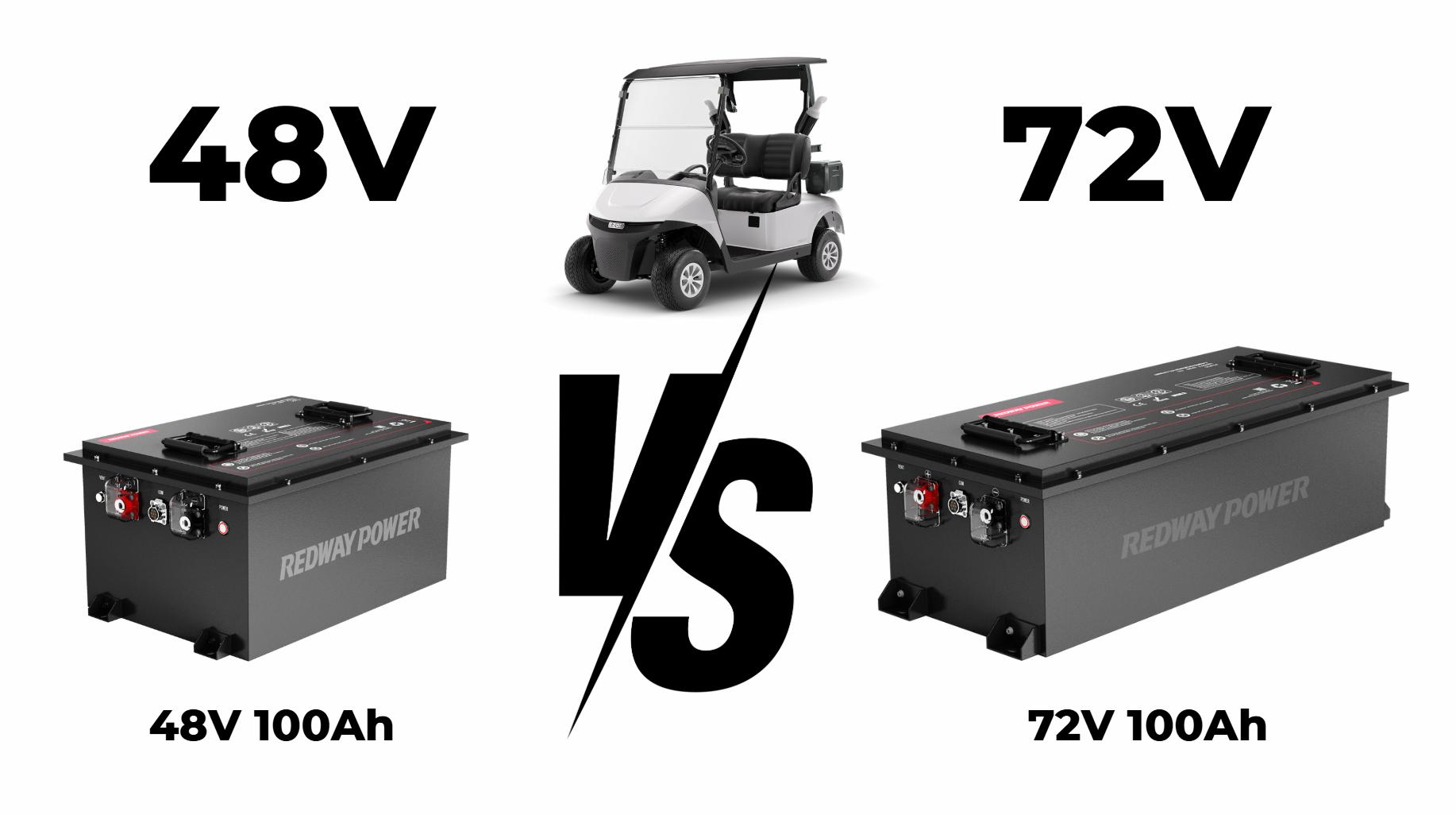Choosing between a 48V and 72V golf cart depends on your need for power, speed, terrain, budget, and maintenance preferences. While 72V carts provide superior power and range for hills and long rides, 48V carts offer cost-effectiveness and sufficient performance for flat terrains.
What Are the Primary Differences Between 48V and 72V Golf Carts?
The main difference is voltage, affecting power, speed, and range. A 72V system delivers more power, higher speeds, and better hill-climbing ability. Meanwhile, 48V carts have lower initial cost, simpler maintenance, and adequate speed for flat courses.
How Does Voltage Influence Power and Speed on a Golf Cart?
Higher voltage systems generate increased power output as power equals voltage times current. Thus, 72V carts accelerate faster and reach higher top speeds than 48V systems, improving performance for demanding uses.
Why Choose a 72V System for Hilly or Challenging Terrain?
A 72V golf cart offers the torque needed to efficiently navigate steep inclines, rough terrain, or off-road conditions. Its higher voltage reduces current load, increasing overall efficiency during extended and strenuous use.
When Is a 48V Golf Cart a More Budget-Friendly Choice?
48V golf carts cost less upfront for the cart and replacement batteries. They are ideal if you mainly drive on flat terrain at moderate speeds and prioritize lower maintenance and initial expenses.
How Does Battery Life Differ Between 48V and 72V Systems?
72V setups often use more robust batteries with higher capacity, which tend to have longer lifespans when properly maintained. Battery life also depends on battery type—for instance, Redway Battery’s lithium packs provide improved longevity for both voltages.
| Feature | 48V Golf Cart | 72V Golf Cart |
|---|---|---|
| Voltage | 48 volts | 72 volts |
| Power | Moderate | High |
| Top Speed | Up to 15 mph | Up to 25+ mph |
| Suitable Terrain | Flat, smooth | Hills, rough terrain |
| Initial Cost | Lower | Higher |
What Are the Motor and Controller Compatibility Considerations?
Ensure your golf cart’s motor and controller match the chosen voltage. Using a mismatched voltage can cause damage or inefficiency. Redway Battery offers compatible lithium packs for both 48V and 72V systems designed to work seamlessly with existing components.
How Do Maintenance and Operating Costs Compare?
72V systems may require more costly batteries and advanced controllers, leading to higher maintenance costs. However, efficient power delivery and longer range can offset some expenses through reduced charge cycles and wear.
How Does Voltage Impact Golf Cart Range and Efficiency?
Higher voltage systems often provide increased efficiency and longer range on a single charge, as they can deliver the same power with lower current, reducing heat loss and battery strain.
How Does Redway Battery Cater to Both 48V and 72V Golf Cart Needs?
Redway Battery designs high-performance lithium battery systems tailored for both 48V and 72V golf carts. Their advanced Battery Management Systems and high-quality cells ensure safety, longevity, and peak output regardless of voltage.
What Safety Measures Are Needed for Higher Voltage Golf Carts?
Higher voltage requires careful wiring, fuses, circuit breakers, and comprehensive battery management to prevent overcharge, short-circuit, or thermal risks. Certified components and expert installation mitigate these safety concerns.
How Can You Upgrade Your Golf Cart from 48V to 72V?
Upgrading involves replacing batteries, motor, and controller compatible with 72V. Ensure professional assessment for compatibility and safety. Redway Battery offers products and guidance facilitating reliable voltage upgrades.
Redway Battery Expert Views
“Selecting between 48V and 72V golf carts hinges on your terrain and performance needs. Redway Battery supports seamless transitions with premium lithium solutions engineered for safety and power. Whether it’s efficient 48V operations or high-powered 72V systems, our technology guarantees durability and optimal performance for every golfer’s journey.” – Expert, Redway Battery
Conclusion
The choice between 48V and 72V golf carts depends on your performance expectations, terrain, and budget. While 72V carts excel in power and range, 48V models offer affordability and adequate performance for flatter areas. Supporting both voltages, Redway Battery delivers advanced lithium solutions ensuring safety, efficiency, and reliability.
FAQs
Can I switch a 48V golf cart to 72V easily?
It’s possible but requires motor, controller, and battery upgrades for compatibility.
Is a 72V golf cart necessary for flat courses?
Not usually; 48V provides sufficient power and range for flat terrain.
Do 72V batteries cost much more?
Yes, initial battery and maintenance costs are typically higher for 72V systems.
How does voltage affect golf cart speed?
Higher voltage generally means greater power and higher potential top speed.
What safety equipment is required for 72V systems?
Proper fuses, circuit breakers, wiring, and a quality Battery Management System.






